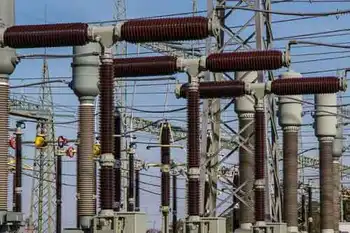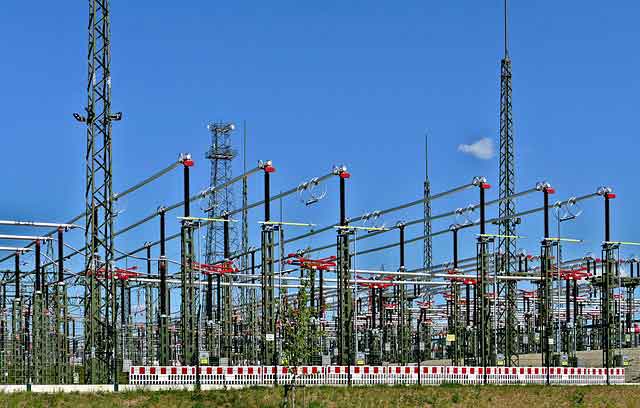San Francisco Battery-Electric Ferries will deliver zero-emission, high-speed passenger service powered by Wartsila electric propulsion, EPMS, IAS, batteries, and shore power, advancing maritime decarbonization under the REEF program and USCG Subchapter T standards.
Key Points
They are the first US zero-emission high-speed passenger ferries using integrated electric propulsion and shore power
✅ Dual 625 kW motors enable up to 24-knot service speeds
✅ EPMS, IAS, DC hub, and shore power streamline operations
✅ Built to USCG Subchapter T for safety and compliance
Wartsila, a global leader in sustainable marine technology, has been selected to supply the electric propulsion system for the United States' first fully battery-electric, zero-emission high-speed passenger ferries. This significant development marks a pivotal step in the decarbonization of maritime transport, aligning with California's ambitious environmental goals, including recent clean-transport investments across ports and corridors.
A Leap Toward Sustainable Maritime Transport
The project, commissioned by All American Marine (AAM) on behalf of San Francisco Bay Ferry, involves the construction of three 150-passenger ferries, reflecting broader U.S. advances like the Washington State Ferries hybrid upgrade now underway. These vessels will operate on new routes connecting the rapidly developing neighborhoods of Treasure Island and Mission Bay to downtown San Francisco. The ferries are part of the Rapid Electric Emission Free (REEF) Ferry Program, a comprehensive initiative by San Francisco Bay Ferry to transition its fleet to zero-emission propulsion technology. The first vessel is expected to join the fleet in early 2027.
Wärtsilä’s Role in the Project
Wärtsilä's involvement encompasses the supply of a comprehensive electric propulsion system, including the Energy and Power Management System (EPMS), integrated automation system (IAS), batteries, DC hub, transformers, electric motors, and shore power supply. This extensive scope underscores Wärtsilä’s expertise in providing integrated solutions for emission-free marine transportation. The company's extensive global experience in developing and supplying integrated systems and solutions for zero-emission high-speed vessels, as seen with electric ships on the B.C. coast operating today, was a key consideration in the selection process.
Technical Specifications of the Ferries
The ferries will be 100 feet (approximately 30 meters) in length, with a beam of 26 feet and a draft of 5.9 feet. Each vessel will be powered by dual 625-kilowatt electric motors, enabling them to achieve speeds of up to 24 knots. The vessels will be built to U.S. Coast Guard Subchapter T standards, ensuring compliance with stringent safety regulations.
Environmental and Operational Benefits
The transition to battery-electric propulsion offers numerous environmental and operational advantages. Electric ferries produce zero emissions during operation, as demonstrated by Berlin's electric ferry deployments, significantly reducing the carbon footprint of maritime transport. Additionally, electric propulsion systems are generally more efficient and require less maintenance compared to traditional diesel engines, leading to lower operational costs over the vessel's lifespan.
Broader Implications for Maritime Decarbonization
This project is part of a broader movement toward sustainable maritime transport in the United States. San Francisco Bay Ferry has also approved the purchase of two larger 400-passenger battery-electric ferries for transbay routes, further expanding its commitment to zero-emission operations. The agency has secured approximately $200 million in funding from local, state, and federal sources, echoing infrastructure bank support seen in B.C., to support these initiatives, including vessel construction and terminal electrification.
Wartsila’s involvement in this project highlights the company's leadership in the maritime industry's transition to sustainable energy solutions, including hybrid-electric pathways like BC Ferries' new hybrids now in service. With a proven track record in supplying integrated systems for zero-emission vessels, Wärtsilä is well-positioned to support the global shift toward decarbonized maritime transport.
As the first fully battery-electric high-speed passenger ferries in the United States, these vessels represent a significant milestone in the journey toward sustainable and environmentally responsible maritime transportation, paralleling regional advances such as the Kootenay Lake electric-ready ferry entering service. The collaboration between Wärtsilä, All American Marine, and San Francisco Bay Ferry exemplifies the collective effort required to realize a zero-emission future for the maritime industry.
The deployment of these battery-electric ferries in San Francisco Bay not only advances the city's environmental objectives but also sets a precedent for other regions to follow. With continued innovation and collaboration, the maritime industry can look forward to a future where sustainable practices are the standard, not the exception.
Related News












